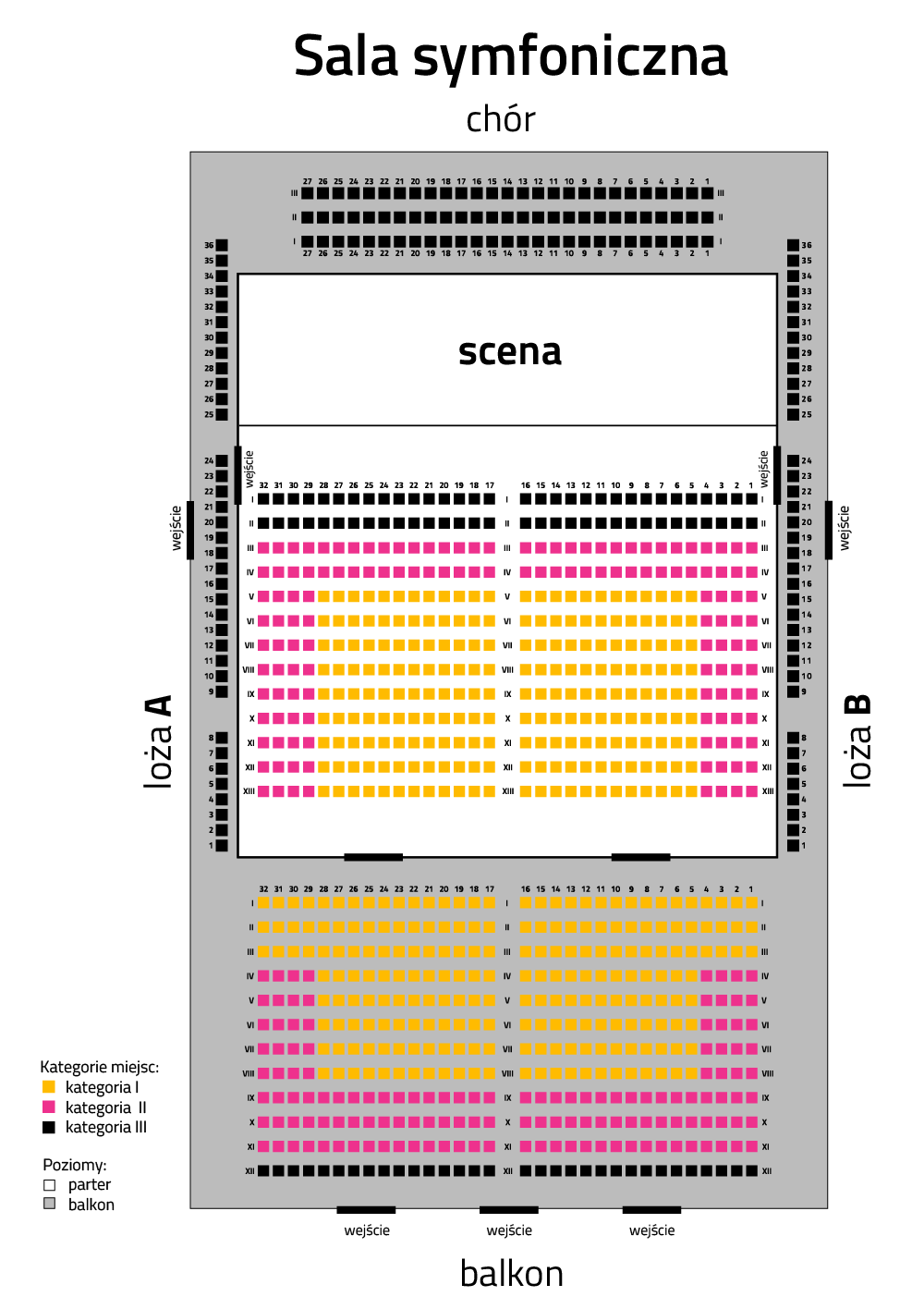That evening, the Szczecin Philharmonic Orchestra will be conducted by one of the best Polish conductors –
maestro Łukasz Borowicz. Being well-known not only to Polish music lovers, he has been the principal conductor of the Poznań Philharmonic since the 2021/22 season. He is famous in the country for his high-profile premieres at the Grand Theatre and the National Opera in Warsaw, and in the world for concerts with such ensembles as the London Philharmonic Orchestra, BBC Scottish Symphony Orchestra, Akademie für Alte Musik or Deutsche Symphonie-Orchester Berlin, to name just a few. In addition, his numerous recordings have been highly appreciated by the critics. Maestro Borowicz has over a hundred albums to his credit! ...
read more.
One of his most valuable recordings is undoubtedly the complete set of all violin concertos by Grażyna Bacewicz (1909-1969) (with soloist Joanna Kurkowicz), and it is this piece by this outstanding Polish composer that will be heard this evening first. Bacewicz was composing at the same time as, for example, Witold Lutosławski, and the world also admired her as an extremely talented violinist. Although initially, she created in the neoclassical spirit, her music later became much more expressive, bold and transcending traditional forms.
Musica Sinfonica in tre movimenti for great symphony orchestra, which we will hear in the first part of the evening, was written at the same time as Witold Lutosławski began working on his Symphony No. 2, i.e. in 1965. The composer decided to depart from the classical, four-movement symphonic cycle. Stanisław Kisielewski, one of the most distinguished Polish music critics, did not hide his surprise but also delight with this entirely different piece by Bacewicz. In 1965, he wrote in Ruch Muzyczny:
Everything is different here: the traditional themes or motifs have been abandoned in favour of entirely differently conducted and entangled instrumental lines, the texture and orchestration are completely new, significantly enriched, diversified, and the instrumentation is highly colourful and fascinating.
In the evening's second part, we will hear the extraordinary
Symphony No. 7 Antarctica by Ralph Vaughan Williams (1872-1958). This British composer, known to the general public as the author of
The Lark Ascending, has been at the top of the prestigious classic FM radio hit list for 11 years, ahead of Mozart, Beethoven and Rachmaninoff. He is the creator of eleven operas, nine concerts, and as many symphonies. We will play the seventh for you, the so-called
Antarctic. The work is based on the music to the
Scott of the Antarctic from 1949. It is an excellent example of Williams' masterful instrumentation, enriched with a female choir and soprano part (in the first and last movements). Various percussion instruments also play an essential role here. The piece shows the turbulent, changing waters of Antarctica.

